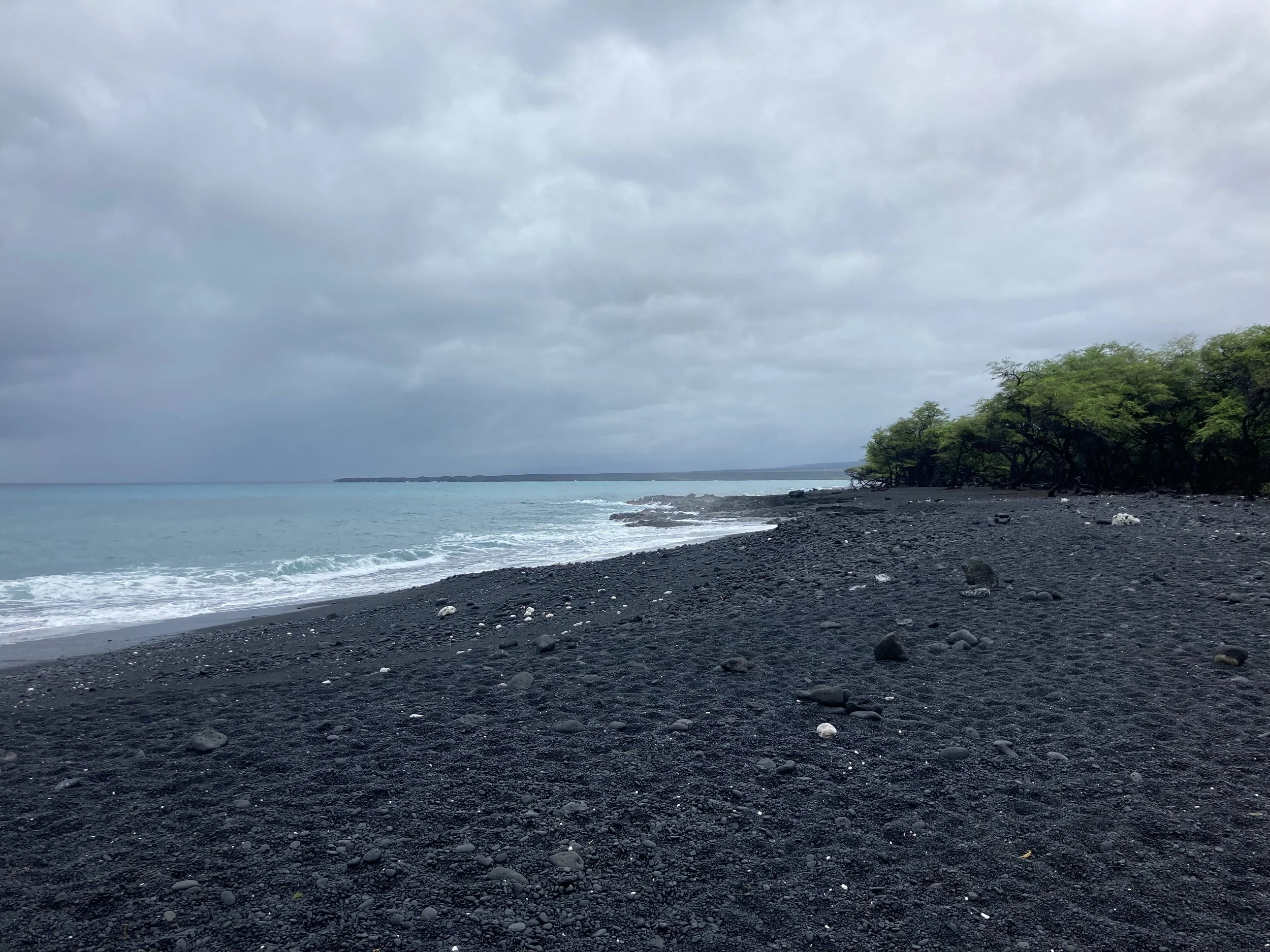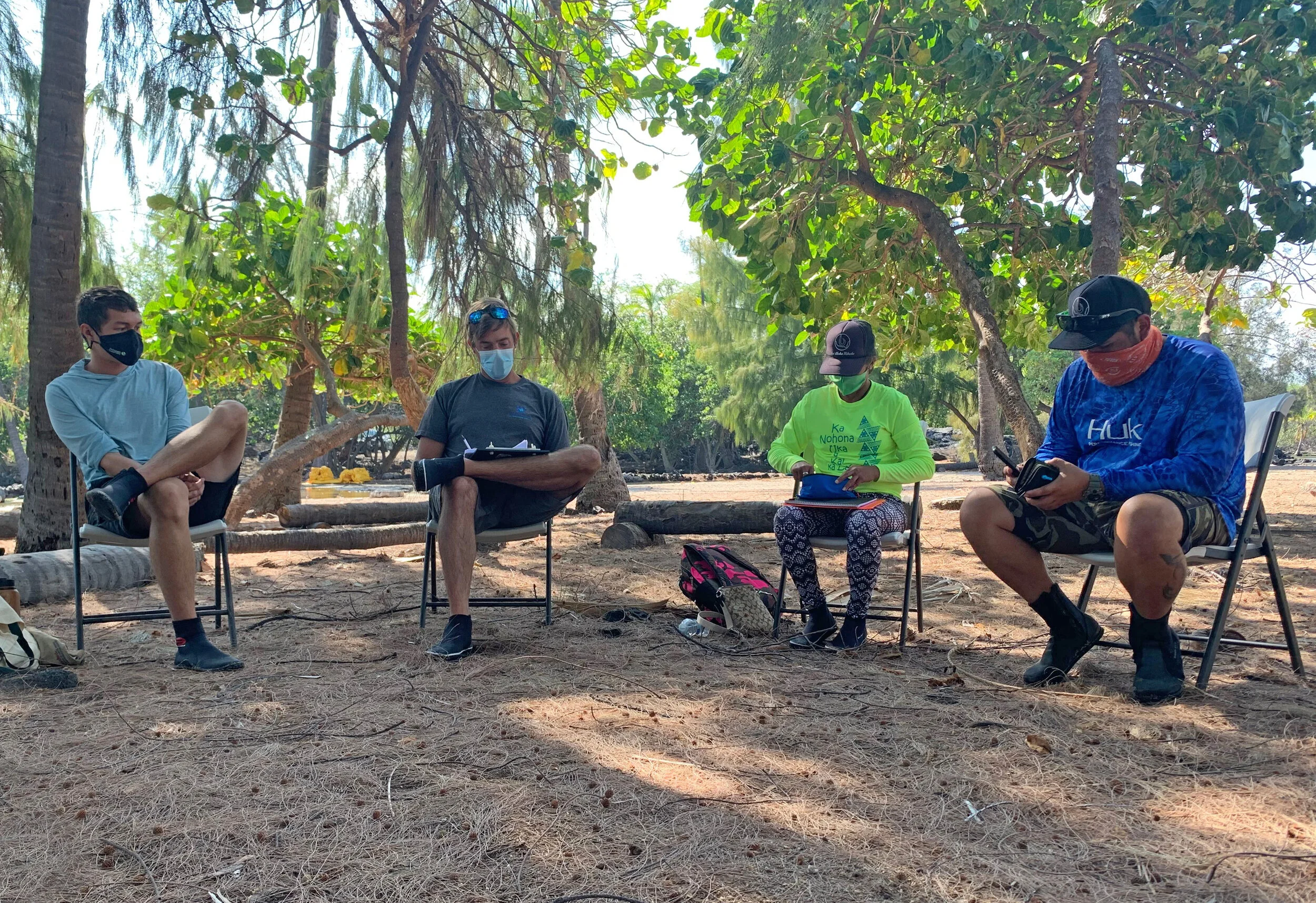On Friday, January 29, starting at 9:30 a.m., join us for our next Aloha Friday Live as we talk story with our ʻohana from Miloliʻi, Kaʻūpūlehu, and Kīholo about the ways our communities are striving to care for our local fisheries.
Pre-registration is required for this webinar. Please click below to register on Zoom. The event will also be streamed on Facebook Live (no registration required).
Do you have a question that you would like to ask our Aloha Friday Live guest speakers?
Submit your question in advance here!
Place-based fisheries management is a traditional practice that is being revived by communities across our pae ʻāina. This adaptive management strategy allows for local communities to take the lead in assessing the health of local fisheries and determining management priorities. In this Aloha Friday Live we will learn from our communities along the Kona coast from Omokaʻa and Miloliʻi in Kona Hema to Kaʻūpūlehu and Kīholo in Kona ʻĀkau. Join us as we learn from lineal descendants of place that share their journey towards sustainable fisheries.
Guest Speakers
Aunty Hannah Kihalani Springer
lives along with three generations of her family at their ancestral home, Kukuiʻohiwai, on the cool upper slopes of Kaʻūpūlehu. Since 1996, she has been a participant in the Kaʻūpulehu Marine Life Advisory Committee (KMLAC). In 2016, the KMLAC successfully petitioned the State of Hawaiʻi for a ten year, all species rest period, from the shoreline out to a depth of 120 feet. The KMLAC is preparing a Fisheries Management Plan for review and comment in anticipation of the rest period ending in 2026.
Kaʻimi Namaielua Kaupiko
is a keiki o ka ‘āina of Miloliʻi. A child of the land, Kaʻimi grew up learning the traditional fish practices of Miloliʻi. Miloliʻi remains one of Hawaiʻi’s last fishing villages, an isolated community that survives through subsistence fishing. For Kaʻimi his foundation has always been built on education and culture. He grew up learning from his kupuna about the value of hard work and about the need to take care of this place. He has served his community through the establishment of a non-profit, teaching through the Kua o ka Lā Hipuʻu program, and his true passion is to help provide a space for the future generations of his community and the rural areas of South Kona and Kaʻū, to have access to educational models that fit their learning capabilities.
Laila Kaupu
was born and raised off the Kona Hema slopes of Mauna Loa, not just from the little fishing village of Miloliʻi but also had the privilege of being raised on a neighboring ahupuaʻa that is ʻohana ʻāina called Omokaʻa. She is privileged to have been raised with the traditional practices of fishing and gathering from the ocean taught to her by her grandparents, and the kūpuna of the village. She continues to pass on these traditions to her son Pohaku and through community outreach opportunities including Miloliʻi Lawaiʻa Camps, Konohiki, Marine Management, and Makai Watch.
Aunty Jenny Mitchell
is a co-founder and the Board President of Hui Aloha Kīholo in addition to being a lineal descendant of Kīholo. As a niho stone in the foundation of our organization, her love for place and people elevate our staff and the work we do to care for Kīholo.
Leighton Hind
grew up with his cousins at Kīholo where they would play in the water all day and they learned how to fish, dive, catch waves and make imu. He is a descendant of the ahupuaʻa of Puʻuwaʻawaʻa, and of Kīholo. Kīholo is where he was told the stories of his kūpuna and learned family values and traditions. This created a deep knowledge and love for his ancestral lands which he still helps to steward today as a Hoa ʻĀina with Hui Aloha Kīholo.
This event is free. You just need a mobile device or computer and an internet connection. We’ll go live on Friday morning a little before 9:30 a.m.
Registration is required for Zoom or you can stream live on Facebook. After registering, you will receive a confirmation email containing information about joining the webinar.


















Camping at the Kīholo State Park Reserve will be closed starting September 24, 2021 until further notice due to COVID-19 guidelines set by the State and/or County.